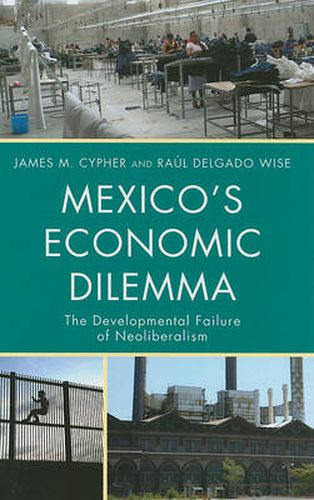Readings Newsletter
Become a Readings Member to make your shopping experience even easier.
Sign in or sign up for free!
You’re not far away from qualifying for FREE standard shipping within Australia
You’ve qualified for FREE standard shipping within Australia
The cart is loading…






Written by two leading scholars, this book provides a detailed analysis of Mexico’s political economy. James M. Cypher and Raul Delgado Wise begin with an examination of Mexico’s pivotal economic crisis of the 1980s and the consequent turn toward an export-led economy, later anchored by NAFTA. They show how Mexico, after abandoning frequently successful past practices of state-led development, disastrously tied its future to an unconditional reliance on foreign corporations to promote an export-led growth strategy.
Focusing on Mexico’s cheap labor export model, the authors use the maquiladora sector and the auto industry as case studies of the perils of globalization-the race to the bottom as capital becomes ever more international. The government’s unconstrained free-market policies, they convincingly argue, have resulted in a fragmented economy marked by stagnation, falling wages, informal part-time employment, and massive migration, which define daily life for all but a tiny minority.
$9.00 standard shipping within Australia
FREE standard shipping within Australia for orders over $100.00
Express & International shipping calculated at checkout
Written by two leading scholars, this book provides a detailed analysis of Mexico’s political economy. James M. Cypher and Raul Delgado Wise begin with an examination of Mexico’s pivotal economic crisis of the 1980s and the consequent turn toward an export-led economy, later anchored by NAFTA. They show how Mexico, after abandoning frequently successful past practices of state-led development, disastrously tied its future to an unconditional reliance on foreign corporations to promote an export-led growth strategy.
Focusing on Mexico’s cheap labor export model, the authors use the maquiladora sector and the auto industry as case studies of the perils of globalization-the race to the bottom as capital becomes ever more international. The government’s unconstrained free-market policies, they convincingly argue, have resulted in a fragmented economy marked by stagnation, falling wages, informal part-time employment, and massive migration, which define daily life for all but a tiny minority.